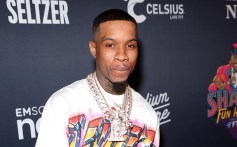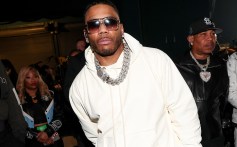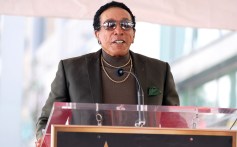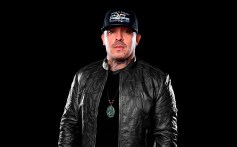Lawsuit
Page: 2
Trending on Billboard
Don Henley and his longtime manager Irving Azoff have won dismissal of a lawsuit over their ultimately unsuccessful prosecution of three men for allegedly trying to sell stolen, original lyrics from the Eagles’ 1976 album Hotel California.
Rare book dealer Glenn Horowitz sued Henley and Azoff for malicious prosecution in February, alleging they manipulated New York prosecutors into charging him and two other innocent men. The criminal case was thrown out midway through trial last year, after Henley belatedly produced evidence relevant to whether or not the Hotel California lyric notes were truly stolen in the first place.
Related
Henley and Azoff say they did nothing wrong and that the collapse of the criminal case was merely based on a technicality. A judge in New York court sided with the duo in a Nov. 10 order dismissing the malicious prosecution claims as legally deficient.
“There was ample probable cause for the DA to bring a case against Mr. Horowitz; indeed, a grand jury indicted Mr. Horowitz based upon the DA’s independent and years long investigation,” wrote Justice Kathleen Waterman-Marshall. “The dismissal of the case at trial after complainant Henley produced documents — none of which were found to exculpate Mr. Horowitz — did not result from any bad faith conduct on the part of the defendants and, thus, does not change this result.”
In a statement to Billboard on Friday (Nov. 21), Henley’s attorney Dan Petrocelli said, “The only malicious prosecution was Horowitz’s own lawsuit, which the court promptly and rightly dismissed.”
Meanwhile, Horowitz’s lawyer, Caitlin Robin, told Billboard that they will appeal Justice Waterman-Marshall’s decision. Horowitz also has a separate malicious prosecution lawsuit still pending against the city of New York.
Related
The debacle stems from the work of journalist Ed Sanders, who was hired in the late 1970s to write a book about the Eagles. Sanders spent time at Henley’s Malibu home while working on the manuscript, which was never published — and, according to the rock star, Sanders stole his handwritten Hotel California lyrics in the process.
The lyrics resurfaced in 2012 on an auction site. Sanders allegedly sold the papers to Horowitz, who in turn sold them to Rock & Roll Hall of Fame curator Craig Inciardi and memorabilia auctioneer Ed Kosinski. Henley complained about the auction listings to various criminal authorities, and Horowitz, Inciardi and Kosinksi were indicted in New York in 2022.
All three men maintained their innocence, arguing that the lyrics were never actually stolen. The trio instead claimed Sanders legally obtained these notes from Henley in the course of writing his manuscript, so it was completely bogus for them to be charged with criminal possession of stolen property.
The case against Horowitz, Inciardi and Kosinksi went to trial in February 2024, with Henley and Azoff both testifying. But things were thrown into disarray when, weeks into the trial, Henley handed over 6,000 pages of documents that he’d previously withheld under attorney-client privilege. These documents included emails discussing Sanders’ unpublished manuscript.
Lawyers for Horowitz, Inciardi and Kosinksi all complained that these late disclosures had prevented them from fully exercising their right to prepare a defense and cross-examine Henley on all the evidence. As a result, prosecutors dropped the charges mid-trial.
Justice Curtis Farber, who oversaw the criminal case, criticized Henley and his lawyers for using attorney-client privilege “to obfuscate and hide information that they believed would be damaging to their position that the lyric sheets were stolen.”
Henley’s lawyers strongly disagree with Justice Farber’s characterization of the events. They say Henley had the absolute right to invoke the sacred attorney-client privilege, and that nothing in these documents would have weakened the criminal case against Horowitz, Inciardi and Kosinksi.
This argument appeared to sway Justice Waterman-Marshall, who said during a hearing in the civil lawsuit last month that the “dismissal was based upon the inability of Mr. Horowitz’s defense to be presented with certain information, but there’s no finding that that information was withheld by Mr. Henley or any of the defendants for an improper purpose.”

Trending on Billboard Megan Thee Stallion told a jury that she experienced severe depression amid a torrent of online hate from those who doubt that Tory Lanez shot her in 2020. The female rap star (Megan Pete) took the witness stand on Thursday (Nov. 20) in her defamation trial against Milagro Gramz (Milagro Cooper), a […]
Trending on Billboard
An appeal filed by Making the Band contestant Sara Rivers aimed at reviving her $60 million sexual assault lawsuit against Sean “Diddy” Combs has been abruptly dismissed — a move that came after her lawyers failed to file basic court forms.
Rivers sued Combs earlier this year over claims that he harassed and groped her during the filming of the 2000s MTV reality show, but a federal judge ruled this summer that she’d waited far too long to sue. After that ruling, she quickly filed an appeal aimed at overturning it.
Related
But last month, according to court records reviewed by Billboard, the appeals court dismissed Rivers’ case. The reason? Her attorneys failed to meet a required deadline to file basic procedural forms that are filed at the start of any appeal.
That failure means that the earlier ruling dismissing Rivers’ case is now final, and most of her case is now closed. A small element of the case has not yet been fully dismissed, but the majority of her case was dismissed permanently.
Ariel Mitchell, the attorney who represents Rivers and failed to make the required filings, did not immediately return a request for comment on Thursday (Nov. 20). Reps for Combs also did not return a request for comment.
Rivers, who became a member of hip-hop group Da Band, sued Combs in February, claiming he had cornered her in a recording studio and “ran his left hand across her breasts.” She also claimed that he later blackballed her in the music industry in retaliation for rebuffing his advances.
Related
The case was one of dozens of civil lawsuits filed against Combs over the past two years alongside his blockbuster federal criminal case. Following a two-month trial, Combs was acquitted last month on the most serious charges of racketeering (RICO) and sex-trafficking in that case, though he was found guilty on two lesser counts of interstate prostitution. Last month, he was sentenced to four years in prison.
In August, Judge Jed Rakoff ruled that Rivers had filed her case far too late. He said allegations centered in the 2000s were clearly filed years after the statutes of limitations had expired.
“It is important to remember the many positive purposes served by statutes of limitations,” the judge wrote. “They promote justice by preventing surprises through plaintiffs’ revival of claims that have been allowed to slumber until evidence has been lost, memories have faded, and witnesses have disappeared.”
Judge Rakoff said Rivers had invoked a “hodgepodge” of arguments for why the time limits should be lifted in her case, including that she was afraid of retaliation from Combs and his business empire. But the judge said that wasn’t enough.
Related
“While Rivers does allege that she experienced a general fear of retaliation preventing her from speaking out against Combs, general claims of psychological stress cannot give rise to duress tolling,” the judge said, referring to the technical term for such a delay.
Rivers quickly appealed, setting the stage for a lengthy battle before the U.S. Court of Appeals for the Second Circuit. But after making her initial case filings, Mitchell never filed another document in the case — even after being warned to do so.
In early October, the court warned her that failure to submit Form C and Form D (a basic case synopsis and disclosure regarding transcripts, respectively) would result in the case being dismissed in two weeks. Mitchell never filed those forms, and the case was duly dismissed on Oct. 17.
Mitchell is the same attorney that Combs is currently suing for defamation over allegations raised by Courtney Burgess, another one of her clients. In TV interviews, Burgess claimed to have videos showing Combs in sexual encounters with celebrities — a claim Mitchell later echoed. Combs says such videos don’t exist and that he was defamed by Mitchell and Burgess’ “outlandish claims.” That case is pending.

Trending on Billboard
Nelly is demanding that a lawyer for one of his former St. Lunatics bandmates repay more than $78,000 he spent in legal bills to defeat her “frivolous” lawsuit over the rights to his debut album Country Grammar.
The case, filed by ex-bandmate Ali, was dropped in April after Nelly argued it was obviously filed years after the statute of limitations had expired. Last month, a federal judge ruled that the case was so bad that Ali’s lawyer must repay his legal bills as punishment for pursuing it too far.
In a court filing on Wednesday, Nelly’s attorneys handed Ali’s lawyer the tab: $78,007 in legal fees for three copyright litigators, covering 142 hours they say they spent working on the case after it was clear it should have been dropped.
Related
“These rates are reasonable because they reflect the market rate for similar services to our quality of work in the New York City area,” Nelly’s attorney Kenneth Freundlich writes in the filing.
Ali’s attorney, Precious Felder Gates, will have a chance to argue for a lower fine before the judge settles on a final number. In a statement to Billboard on Thursday, she said she still believes the sanction itself was “unwarranted,” saying she’d “acted with the honest conviction that our client’s claims merited judicial consideration.”
Wednesday’s filing highlights the risk of filing questionable lawsuits against well-heeled defendants – and a potential weapon for top musicians who have complained about a rise in such cases. Ed Sheeran, Cardi B, Jay-Z and many other stars have warned that such lawsuits are often aimed at extracting quick settlements by exploiting the hassle and expense of litigation.
The case against Nelly was filed last year by members of St. Lunatics, a hip-hop group also composed of St. Louis high school friends Nelly, Ali (Ali Jones), Murphy Lee (Tohri Harper), Kyjuan (Robert Kyjuan) and City Spud (Lavell Webb). It centered on Country Grammar, the star’s debut solo album that spent five weeks atop the Billboard 200 and helped launch a career that reached superstar heights with his 2002 chart-topping singles “Hot in Herre” and “Dilemma.”
Related
The lawsuit alleged that Nelly had cut his former crew members out of the credits and royalty payments for the hit album. It claimed the star had repeatedly “manipulated” them into falsely thinking they’d be paid for their work.
But three of the St. Lunatics quickly dropped out, saying they had never actually wanted to sue Nelly and hadn’t given authorization to the lawyers who filed the case. Though Ali initially moved ahead alone, he dropped the case entirely in April. That move came as Nelly’s lawyers were seeking to dismiss the decades-delayed case under the Copyright Act’s three-year statute of limitations.
Though the case was over, Nelly’s attorneys refused to let Ali and his lawyers walk away. They asked for sanctions — meaning legal penalties — over a “vexatious” lawsuit that “should never have been brought.”
In the American legal system, each side usually pays its own legal bills, even including defendants who win a lawsuit that they feel they shouldn’t have faced. Only in rare cases, including as punishment for misconduct, do judges order the loser to repay the winner’s fees.
Last month, U.S. Magistrate Judge Robert W. Lehrburger said the case against Nelly was that kind of rare situation. He said it should have been “patently obvious” to Felder Gates that the case was doomed by last November, but that she had instead “doubled down.”
Related
Felder, the judge said, should face punishment for “vexatiously protracting the proceedings in bad faith by her attempt to obfuscate the facts she knew barred Jones’s claims and her subsequent refusal to withdraw the amended complaint in the face of overwhelming arguments that the claims could not possibly succeed.”
At the time, Freundlich said he hoped the ruling “sends a message to lawyers that there will be consequences for dragging a defendant into an action that is frivolous on its face.”
Wednesday’s filing explained the amount that Nelly’s lawyers say Felder Gates should pay under that order. Freundlich, a veteran music industry litigator, says he spent 19 hours at his rate of $725 per hour; a senior counsel at his firm, Jonah A. Grossbardt put in 88 hours at $575 per hour; and an associate, Hugh H. Rosenberg, worked 35 hours at $375 per hour.
Such rates are typical for attorneys at those levels in major law firms in New York and Los Angeles. Many lawyers at bigger firms charge even more, and complicated cases can cost millions to litigate. But the judge is not required to grant the entire request and could very well settle on a lower number.
Felder Gates will have a chance to file a motion next week seeking a lower fine, but the judge’s order means that she will eventually have to pay Nelly some amount of fees. In her statement to Billboard, she continued to defend her firm’s conduct in the case.
“Our firm pursued a legitimate claim in good faith to protect rights expressly afforded to our client,” she said. “Based on the information available and the applicable law, we held a reasonable and well-supported belief that viable arguments existed to [extend] the statute of limitations, and we accordingly advanced those defenses.”
Trending on Billboard
Two more of Smokey Robinson’s former employees — a woman and a man — have come forward with claims that the 85-year-old Motown singer sexually assaulted them on the job.
Robinson was first accused of sexual misconduct in May, when four anonymous, female ex-housekeepers at his Los Angeles-area home brought a $50 million civil lawsuit alleging the singer forced them to have oral and vaginal sex dozens of times between 2007 and 2024. Robinson vehemently denied those claims and has countersued the housekeepers for defamation.
Related
Now, another anonymous female housekeeper and an unnamed male car mechanic want to join the lawsuit. A lawyer for the group, John Harris, argued in a motion to amend the lawsuit on Friday (Nov. 14) that all the claims involve “overlapping events under the same operative timeline.”
The fifth housekeeper, dubbed “Jane Doe 5,” claims Robinson groped her breasts, propositioned her for sex and forced her to scrub his back in the shower between 2007 and 2011. The mechanic, a man known as “John Doe 1,” says Robinson would masturbate while watching him work starting in 2013 and once tried to force him to touch Robinson’s penis.
In a statement shared with Billboard on Wednesday (Nov. 19), Harris said, “We commend these two courageous survivors for stepping forward and adding their voices to this case. We look forward to advocating for them vigorously as they pursue the justice they deserve.”
Robinson’s lawyer, Christopher Frost, responded in his own statement that the new claims are false and part of an “organized, avaricious campaign to extract money from an 85-year-old legend.”
“This group of people, who hide behind anonymity, and their attorneys seek global publicity while making the ugliest of false allegations,” added Frost. “Once the public can see the truth, their avaricious motives and fabricated claims will be revealed.”
The civil claims against Robinson are currently scheduled to go to trial in 2027. The Los Angeles County Sheriff’s Department also opened a criminal investigation after the housekeepers made a police report, though no charges have been filed to date.
Trending on Billboard
Usher is suing music producer Bryan-Michael Cox and other organizers of a failed Atlanta restaurant project, claiming in a new lawsuit that they still owe him $700,000 and misused money he lent to buy the property.
In a case filed last week in Georgia court and obtained by Billboard, the Atlanta superstar says he lent more than $1.7 to Cox and others to help purchase a building for “Homage ATL,” a high-end restaurant and lounge in the city’s tony Buckhead neighborhood.
Related
When the deal didn’t go through, Usher’s lawyers say he demanded his money back, but the Homage organizers only returned $1 million – because the rest had allegedly been used elsewhere without permission.
“Plaintiff loaned [the money] for the sole purpose of purchasing the Buckhead property,” Usher’s attorneys write. “The defendant investor group failed to purchase the Buckhead property and, instead, diverted the Raymond loan balance for [other] purposes.”
Cox is a well-known R&B producer who’s produced hits for Mary J. Blige, Mariah Carey and Usher himself. The other defendants are alleged project partners Keith Thomas and Charles Hughes, as well as attorney Alcide Honoré and several companies allegedly tied to the project.
In a statement on Instagram, Cox seemed to pin the blame for the dispute on others: “My legal team has … advised me of a lawsuit involving a company where I am only a passive minority shareholder. I was not a participant in that business transaction and have no involvement in the ongoing legal process. While I’m unable to share more details right now, I want to make one thing absolutely clear: my 27-year friendship with @usher remains fully intact.”
But Usher’s lawyers don’t seem to be in a friendly mood. They claim Cox and the rest of the Homage organizers were “unjustly enriched” by using the remaining loan funds for other reasons, “which was to plaintiff’s detriment, damage, and expense.”
Related
Usher’s case claims that Cox, Hughes and Thomas approached him last year about the project, which was “intended to offer the public a unique dining lounge experience.” Though he says they wanted the locally-raised superstar to sign onto the project as a full-fledged partner, Usher says he “declined to become an investor” and instead opted merely to loan the group money to buy the restaurant’s location for more than $6 million.
As the “days and months passed” in early 2025, the two sides continued to negotiate a potential investment by Usher, but no deal was ever reached and the Buckhead property was never purchased. Eventually, the star says he demanded his money back – but that Honoré effectively told him that some of the funds had been used elsewhere.
“Honoré all but admitted that the Raymond loan balance was disbursed when he stated that returning that balance was ‘not that easy’ because plaintiff’s funds had been deployed for ‘other purposes’,” Usher’s attorneys write. “Honoré stated [that Usher] would be repaid once the Buckhead property was purchased and the property was refinanced, indicating that he apparently no longer had possession, custody, or control over the funds.”
Several of the lawsuit’s claims are aimed solely at Honoré, including breach of bailment – meaning he failed to return Usher’s property – as well as various other forms of wrongdoing, including negligence and breach of fiduciary duty. He did not return a request for comment. The case accuses the rest of the investors of breach of contract, unjust enrichment and keeping money that wasn’t theirs. Thomas and Hughes could not immediately be reached for comment.
Trending on Billboard
THE BIG STORY: Almost 20 years after Kim Kardashian burst into the national consciousness with a leaked sex tape, the male participant in the video says it wasn’t actually leaked at all.
In an explosive lawsuit filed last week, the R&B singer Ray J claimed the film was intentionally released by his then-girlfriend, Kardashian, and her mother, Kris Jenner, who have since spent nearly two decades “peddling the false story” that it was leaked.
Related
That’s not an entirely new claim; rumors have long swirled about the infamous tape that launched the billion-dollar Kardashian empire. But the family has always denied the claim, and there was no hard evidence or inside knowledge to argue otherwise.
How exactly did Ray J and Kardashian get to this point? And how do you sue someone over this? For the full backstory and the breakdown of the case, go read our story here.
You’re reading The Legal Beat, a weekly newsletter about music law from Billboard Pro, offering you a one-stop cheat sheet of big new cases, important rulings and all the fun stuff in between. To get the newsletter in your inbox every Tuesday, go subscribe here.
Other top stories this week…
GIMME DAMAGES – The company that owns the early Rolling Stones catalog filed a lawsuit against Behr Paint over an Instagram ad that allegedly featured “Paint It, Black” without a sync license.
DAY IN COURT – Lil Nas X made his first court appearance since leaving an inpatient treatment program following his August arrest for attacking police officers during a late-night naked walk.
CONVICTION AFFIRMED – An appeals court upheld the conviction of Tory Lanez for shooting Megan Thee Stallion, rejecting his arguments aimed at overturning his 10-year prison sentence.
CONTEMPT OF COURT – Elsewhere in the Tory-Megan saga, a judge held Lanez in contempt for refusing to be deposed: “Whatever the fines are, I’ll pay them,” he said. “I’m a millionaire. I don’t care.”
RELEASE DATE – Sean “Diddy” Combs’ projected release date was pushed back by a month, a move that came after media reports that he violated prison rules by drinking homemade alcohol.
DOWNTOWN DISPUTE – Downtown Music faces a lawsuit claiming it threw licensing partner Blast Off Media under the bus as a “sacrifice” to lessen regulatory scrutiny of its acquisition by UMG.
DEATH THREATS? – Lil Durk’s lawyers say they’ve been “kept in the dark” about alleged death threats that were called in to a judge and the lead prosecutor in his murder-for-hire case.
DRAKE SUED, AGAIN – A new lawsuit against Drake claims his music video ripped off the work of an Italian photographer — and, in a strange twist, that he did it as part of his feud with Kendrick Lamar.
NO SEQUEL – Cardi B’s lawyers scoffed at the idea of a second trial in Emani Ellis’ failed assault case against the superstar, calling it “absurd” after jurors easily rejected the allegations.
CASE DROPPED – A$AP Relli is ending his civil lawsuit against A$AP Rocky over an alleged Hollywood shooting, months after Rocky was acquitted on such accusations at a criminal trial.
FREE, FOR NOW – Music executive Ángel Del Villar will remain a free man while he appeals his convictions for doing business with Mexican drug cartels and the resulting four-year prison sentence.
BITTER BREAKUP – There’s a new front in the nasty legal war between hip-hop producer Madlib and his longtime manager Eothen “Egon” Alapatt: The copyrights to their songs.
MORE ALLEGATIONS – After Calvin Harris’ bombshell fraud lawsuit against business manager Thomas St. John, fellow star DJ Eric Prydz has now filed his own case claiming the manager stole $269,000.
LOCK HIM UP – Prosecutors want Tekashi 6ix9ine sent back to prison over multiple violations of his supervised release, including assaulting someone who taunted him as a snitch.
LIBEL LAWSUIT – Biggie’s son filed a defamation case against a Florida music producer who accused him — he says falsely — of participating in one of Sean “Diddy” Combs’ sexual assaults.
Trending on Billboard
Eminem has launched a legal battle with an Australian beach umbrella brand called “Swim Shady,” claiming the company is just imitating his “Slim Shady” alter ego.
The rapper, whose real name is Marshall Mathers, is fighting a legal action at the U.S. Patent and Trademark Office, seeking to cancel an American trademark that the Sydney-based Swim Shady secured on its name earlier this year.
Related
Eminem’s attorneys say the similar-sounding name “uniquely and unmistakably” points to the “internationally renowned recording artist and entertainer” – and that customers will be “deceived” into thinking he’s somehow involved.
“The petitioned mark is highly similar to petitioner’s name,” his lawyers write in their September petition, obtained by Billboard. “Consumers and potential consumers, and anyone seeing one of respondent’s products in the marketplace … will assume that the source of the goods emanates from [Eminem].”
Eminem debuted the Slim Shady name in 1997, using it for an aggressive alter ego that explores darker and more violent subjects. His 1999 album The Slim Shady LP, which reached No. 2 on the Billboard 200, focused heavily on the name, including his breakout “My Name Is” and his smash hit “Real Slim Shady” that reached No. 4 on the Hot 100.
The star has had “Slim Shady” registered as a federal trademark since 2001, holding rights to the name covering a wide range of goods. And he’s not afraid to enforce those rights: In 2023, he filed a similar case against Real Housewives stars Gizelle Bryant and Robyn Dixon over their efforts to get a trademark for the name of their “Reasonably Shady” podcast.
Related
Swim Shady launched earlier this year to sell a small, foldable beach umbrella – a product it says is aimed at “solo beachgoers who wanted better sun protection without the hassle.” And the company has big plans: According to its website, it is seeking or has secured trademarks for that name around the globe, including in China, the U.S. and the European Union.
In September, the USPTO formally granted the company an American trademark registration for its name, covering both beach gear and a wide assortment of apparel. Such a registration makes it easier to sue someone selling a knock-off brand and allows a company to use the ® symbol.
But Eminem’s lawyers, in their Sept. 29 petition, say Swim Shady’s trademark never should have been registered. Such cases, filed with the PTO’s Trademark Trial and Appeal Board, are a common way that brand owners prevent others from securing rights to their names.
Eminem knows that process well. Since 2003, his lawyers have filed at least six such cases at that trademark dispute body — including not just the Real Housewives case but also one against an apparel brand called “Shadzy” and another against a sunglasses brand called “Shady Character.”
Related
Many other superstar artists have taken similar proactive measures to defend their names against similar-sounding trademarks filed by third-parties, which are cheap to file and sometimes slip through the approval process. Taylor Swift filed a case in 2017 to block a “Swifty” trademark; Jay-Z has filed more than ten over the years.
Such cases don’t legally stop a company like Swim Shady from using a brand name on their products, but merely from securing their own trademark rights to it; only a full-fledged federal lawsuit can shut down an infringing company. But in his new case, Eminem suggests that he thinks Swim Shady’s use of the name violates his rights.
“Petitioner is and will continue to be damaged by any sale or any offering for sale of Swim Shady goods by respondent, since there will exist a false association and suggestion as to the source of the goods involved,” his lawyers write. “Any inferior quality of respondent’s goods will damage the reputation of petitioner’s premium goods and services.”
Reps for both Eminem and Swim Shady did not immediately return requests for comment.
Trending on Billboard
A federal judge has held Tory Lanez in contempt of court on the eve of trial in a civil lawsuit filed by Megan Thee Stallion – a move that came after the singer said: “I’m a millionaire. I don’t care.”
In a ruling Sunday evening, the judge said that Lanez (Daystar Peterson) – currently serving a 10-year prison sentence for shooting Megan in 2020 – had behaved so poorly during three different depositions that he must now pay a $20,000 fine.
Related
According to U.S. Magistrate Judge Lisette M. Reid, that’s an outcome Tory already shrugged off during the most recent debacle: “When told his behavior could result in contempt of court and sanctions consisting of fines and additional jail time, Mr. Peterson then said, ‘whatever the fines are, I’ll pay them. I’m a millionaire. I don’t care’.”
The ruling came a day before the start of a jury trial in a civil lawsuit Megan filed last year against social media personality Milagro Gramz (Milagro Cooper). The star claims Gramz waged a “coordinated campaign” with Lanez to “defame and delegitimize” her in the wake of the shooting.
In addition to the monetary fine, the judge also said that jurors in that trial should be told about Lanez’s refusal to answer questions about whether he ever communicated with Gramz – an unwelcome development for her defense attorneys.
Lanez was convicted in December 2022 on three felony counts for shooting Megan in the foot in July 2020 during an argument following a pool party at Kylie Jenner’s house in the Hollywood Hills. In August 2023, he was sentenced to 10 years in prison. His appeal of the verdict and sentence was denied last week.
Related
Last year, Megan filed her civil lawsuit against Gramz, calling her a “mouthpiece and puppet” for Lanez who had been “churning out falsehoods” about the criminal case on his behalf: “Enough is enough,” her lawyers wrote at the time.
Unsurprisingly, Lanez is a key witness in that lawsuit, and Megan’s lawyers have repeatedly tried to depose him from prison. But each time, the singer has disrupted the proceedings and refused to answer questions; Megan’s lawyers have said he’s “made a mockery of the proceedings.”
In her ruling on Sunday, Judge Reid echoed those claims. She said Megan’s lawyers had been “unable to ask more than two questions before Mr. Peterson stormed out of the room.” The judge said Tory later made “derogatory comments” and hurled “multiple expletives” toward Megan’s lawyers and never answered any questions.
Lanez’s attorney, Crystal Morgan, also drew the judge’s ire. Judge Reid said she had objected to questions that were “clearly relevant” during the brief deposition, and had engaged in “coaching the witness.” The judge ordered her to pay $5,000 as her fine.
Related
Trending on Billboard
C.J. Wallace, son of The Notorious B.I.G., has countersued for defamation after a Florida music producer and publicist accused him of participating in a sexual assault with Sean “Diddy” Combs.
Jonathan Hay filed a lawsuit this summer claiming that while working on a remix project with the Biggie estate in 2020, Wallace and an associate brought him to a house where Combs forced him to perform oral sex. The case also alleged multiple other instances of sexual misconduct by Combs, who’s faced a barrage of civil assault lawsuits since being criminally charged last year.
Related
Wallace is now hitting back at Hay with a countersuit in which he calls the allegations a “calculated smear campaign.” The federal court complaint, filed Wednesday (Nov. 12), alleges Hay fabricated these claims because he was upset about their remix project falling through.
The countersuit alleges the estate decided to shelve the project — a house remix of Biggie’s 1994 album Ready to Die, called Ready to Dance — after the first single (a remix of “Big Poppa”) flopped in August 2020. Wallace says Hay was “irate” at this decision and later came up with a phony story about the alleged Combs assault.
“The statements constitute defamation,” writes Wallace’s attorney, Jeremiah Reynolds of Eisner LLP. “As a direct and proximate result, Wallace has suffered general and special damages, including loss of professional opportunities, humiliation and mental anguish.”
Wallace’s defamation claims don’t actually target Hay’s sexual assault lawsuit, since legal filings are broadly shielded from slander liability under a principle known as the litigation privilege. Instead, Wallace’s case focuses on an October YouTube video in which Hay repeated and described his claims in detail.
Related
While Hay’s assault lawsuit was filed anonymously, he revealed his identity in this video, titled “Jonathan Hay Details EXACTLY What Happen When Diddy A$$AULTED Him, Forced to S*CK D*CK & VlOLATED!”
Hay declined to comment on the countersuit when reached by Billboard on Friday (Nov. 14), but noted that he’s filed a police report in addition to the pending civil lawsuit against Combs and Wallace.
Combs’ reps did not immediately return a request for comment on the matter. The disgraced rap mogul is serving a prison sentence for arranging drug-fueled sex marathons between his girlfriends and male escorts, though he was acquitted of more serious sex-trafficking and racketeering charges at a blockbuster trial this summer.

 State Champ Radio
State Champ Radio 







